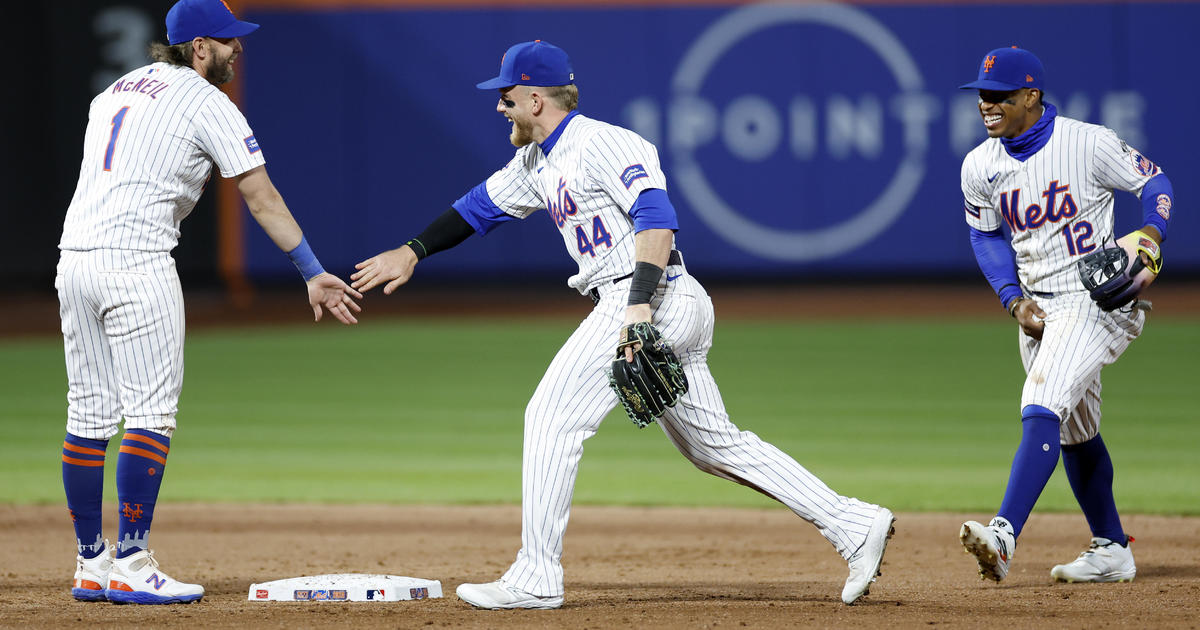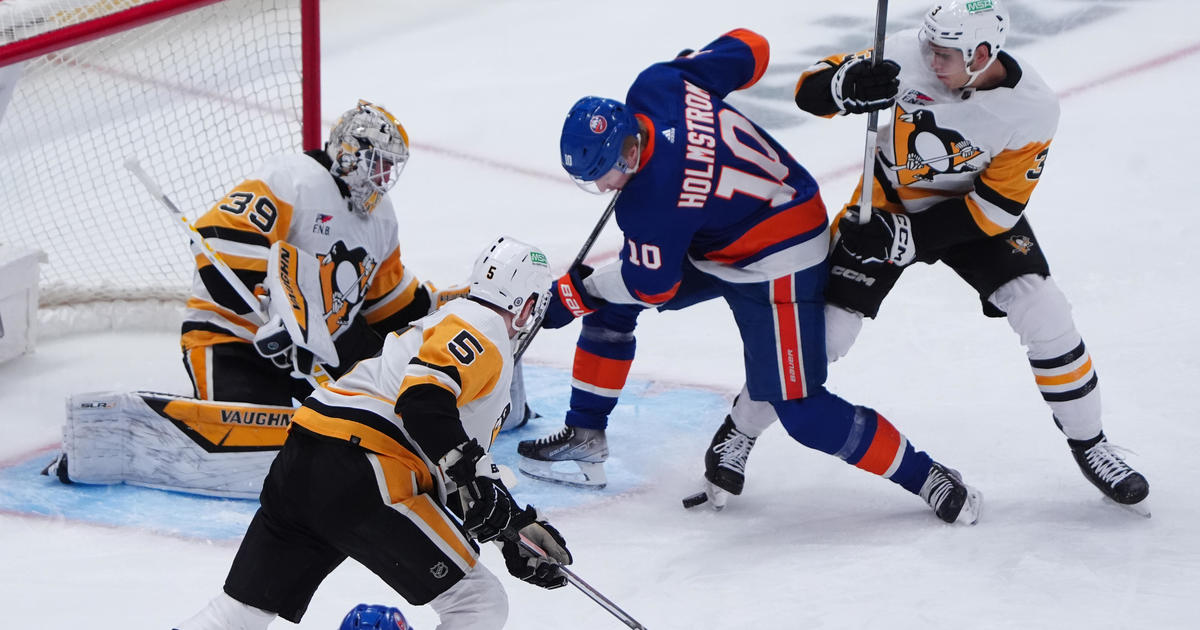Jets, NFL Working Lots Of Overtime
BARRY WILNER,AP Pro Football Writer
Few things infuriate football fans more than the one-possession overtime. You know, win the coin toss, kick a long field goal and go home.
Unfair? Although few NFL coaches, players or team executives complain much about it, there certainly is an element of inequity in the rules. The league has done something about it on an experimental basis for this year's playoffs, requiring that both sides get one possession if the receiving team takes the OT kickoff and kicks a field goal on that series.
But there were no changes for the regular season.
"I know that the overtime changes for the playoffs," Buffalo center Geoff Hangartner said. "It seems to me like they should make just one consistent rule and stick with it. It's kind of like they're trying to find the best between the college system and the way we've had it. They just need to find one plan and stick with it, honestly."
Maybe true. But thankfully, the system hasn't mattered much in the 13 games that went to overtime so far in 2010. Only one, the Jets' 23-20 victory at Detroit two weeks ago, ended with that annoying one-series scenario.
Otherwise, the extra time has brought extra excitement. Consider the Jets' 26-20 win last Sunday at Cleveland, making them the first visiting team to win consecutive OT games on the road. And Kansas City's thrilling 13-10 decision against Buffalo on Oct. 31 that ended on the final play of the 15-minute overtime.
Or Baltimore's wild 37-34 victory the previous week against the Bills.
The 13 overtimes match the total for last year — 25 is the record for a season, in 2002. Five of the 2009 OTs ended on the first possession, all of them with winning field goals, none lasting more than seven minutes. This year, the field goal still has been decisive, with 11 games won by kicks.
But it's taken longer to make those kicks or score a touchdown.
Santonio Holmes' TD reception to beat Cleveland last Sunday came with 16 seconds to go. Ryan Succop's field goal lifting the Chiefs over the Bills came as time expired in OT. Baltimore beat Buffalo and lost to New England on kicks with less than 2:00 remaining, and Atlanta won that way at New Orleans. Houston beat Washington on Neil Rackers' kick with 3:24 on the clock.
In 2010, only two games went beyond 12 minutes of overtime.
Other than outlasting the opposition, what's the key to surviving in OT, which Jets defensive coordinator Mike Pettine says causes "more mental strain" than physical exhaustion?
"I think you're more conscious of the field position in overtime," Bills quarterback Ryan Fitzpatrick said. "It's not something where you want to take three shots down the field and then end up punting to them and losing field position. So I think first downs are that much more important.
"That being said, I think maybe you are a little more conservative in overtime only because the aspect of, 'We have to get first downs.'
"Other than that, you're running your base stuff. You're trying to move the ball as usual."
Jets defensive tackle Trevor Pryce, who's been in his share of overtime games in a 14-year career, disagrees.
"I think lots of coaches get even more aggressive," Pryce said. "You have 15 minutes to score or it ends in a tie. It's a running clock in the coaches' heads. You sure can't grind it out with 3 yards and a cloud of dust. You have to add some things to your repertoire."
Perhaps. The Browns stayed aggressive in the closing minutes of OT against New York, when they could have taken a knee and settled for the tie. Colt McCoy threw out of the end zone on first down and got sacked on third down, narrowly avoiding a safety — and talk about unusual ways to win a game, two OTs have ended with safeties, wins by the Vikings over the Rams in 1989 and the Bears over the Titans in 2004.
Cleveland punted from its end zone, Jim Leonhard ran it back 18 yards, and Holmes scored his 37-yard TD on the next play.
Perhaps the biggest concern about lengthy fifth periods or going into overtime more than once is the fatigue factor. Not that players feel all that tired after a win.
"Positively, it helps confidence-wise, knowing that whenever you're in that situation, you can pull the game out," Jets running back LaDainian Tomlinson said. "It's kind of that never-die-attitude, that moxie, where you can say, 'You know what? We're going to win this game.'
"On the negative side, it wears you out. It really does, and you might need a little extra rest after the game."
Especially if you wind up in OT the next week, too.
___
AP Sports Writers Dennis Waszak in Florham Park, N.J., John Wawrow in Orchard Park, N.Y., and Tom Withers in Berea, Ohio, contributed to this story.
Copyright 2010 The Associated Press.
Related articles
- Holmes' TD In OT Sends Jets Past Browns 26-20 (newyork.cbslocal.com)




